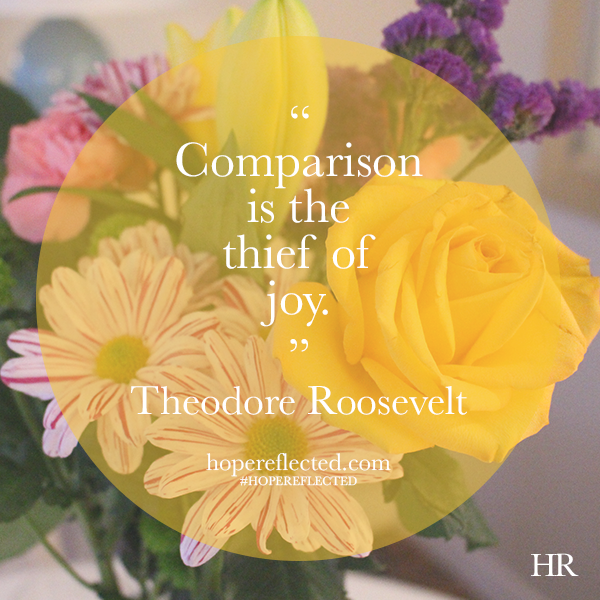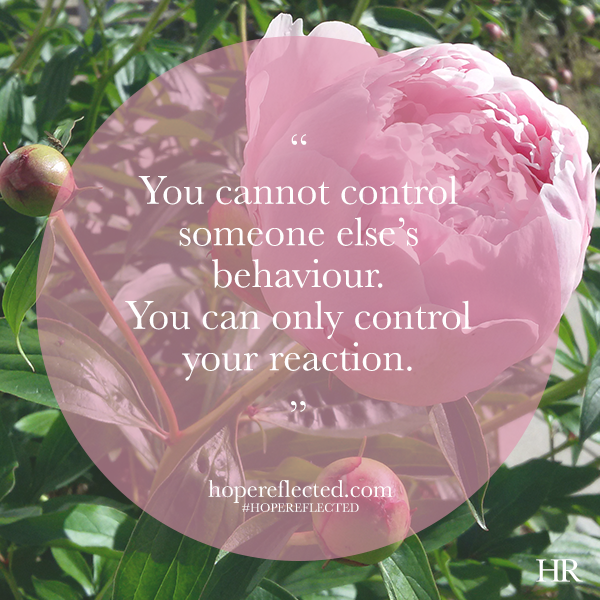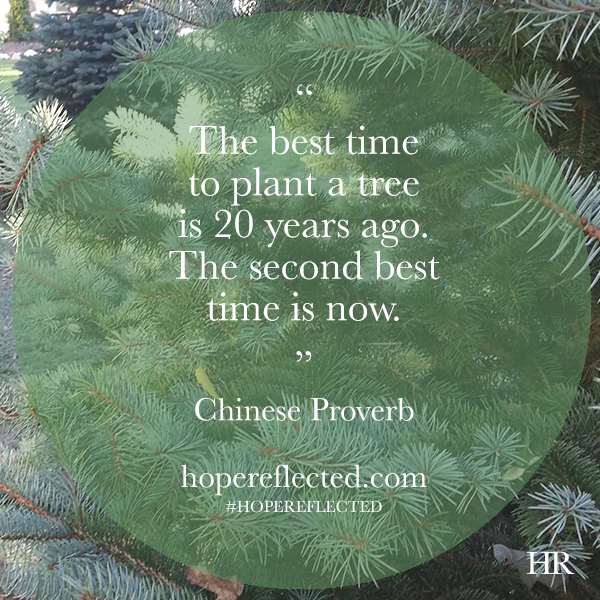Hope Reflected: 3 Building Blocks – The Blessings of Contentment
Written by H, Posted in Christian Living, Published Work
As a young girl, I was an avid Barbie collector. With each allowance, birthday, or celebratory holiday (or even sometimes just because), my Barbie collection grew to include upwards of thirty to forty dolls, complete with all the accessories – Barbie convertible, Barbie funhouse, Barbie dog – but I can remember specifically visiting my cousin’s house and seeing her collection – which included the enviable Barbie mansion – and thinking, “I really, really want the Barbie mansion. Like, really!” I’m pretty sure every one of us has a similar story from our childhood.
So what does Barbie have to do with contentment? It’s not the Barbie doll per se, it’s the principle of the story. Too often I think we look at our friends and neighbours and – whether consciously or not – start thinking the grass is greener on the other side. But the fact is, the grass is greenest where we choose to water it! It’s important to be satisfied with what God has given us. Not to say that we shouldn’t have drams and goals that we work towards, all I mean is that we need to place value on the blessings that we already have.
So what does the Bible say about contentment?
- Contentment builds reassurance. Jesus says in Matthew 6:25 (NKJV), “Therefore I say to you, do not worry about your life, what you will eat or what you will drink; nor about your body, what you will put on. Is not life more than food and the body more than clothing?” It’s a huge exercise in faith to learn to be content with what we have and not worry about what we could have or how we’ll get what we want or think we need.
- Contentment builds trust. When we’re content (read: Satisfied, but not lazy), we’re demonstrating trust that God’s got everything under control. That’s not to say you shouldn’t use common sense or intelligence, just that you’re trusting God to provide for your needs. David said in Psalm 23:1 (KJV), “The Lord is my shepherd; I shall not want.” Think of what a shepherd does for his flock: He provides and he protects.
- Contentment builds joy. There’s an old saying that says “Comparison is the thief of joy.” And how true it is! When we start comparing ourselves or our circumstances to others, we lose our sense of self and quite often are left feeling deflated and inferior. Because guess what? There’s always going to be someone who’s smarter than you, someone who’s prettier, someone who has more money, or a bigger house, or a better car. Fact. Of. Life. So why waste time fretting about it? The apostle Paul wrote in his letter to the Philippians (4:11-13, NKJV), “Not that I speak in regard to need, for I have learned in whatever state I am, to be content. I know how to be abased, and I know how to abound. Everywhere and in all things, I have learned both to be full and to be hungry, both to abound and to suffer need. I can do all things through Christ who strengthens me.”
Content people are not always happy people, but content people are consistent, thankful, and more likely to be loving and grateful for the people around them. There’s the old saying that goes, “When we pursue happiness, we flee contentment.” Stop, take a look around, and purposefully count your blessings. Choose something today – or someone – for which you’ll practice an attitude of gratitude.












![False friends or counterfeit kindness; whatever you want to call it, the world is filled with people who will say one thing to your face and then another behind your back; people who will woo you in order to get something from you.
It’s sad, but it’s true.
The Bible provides us with examples from Joab to Judas, and yet, we’re surprised when we find ourselves deceived and hurt by someone else.
So what are some of the hallmarks of a true friend?
You can read more about this on hopereflected.com [Link in profile]
.
.
.
#friends #friendship #kindness #counterfeitkindness #hurt #proverbs #truefriends #hopereflected #blog #blogpost](https://www.hopereflected.com/wp-content/plugins/instagram-feed/img/placeholder.png)